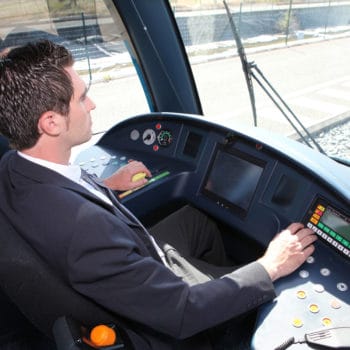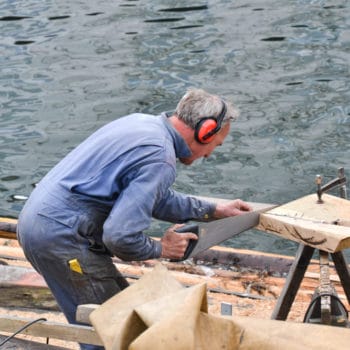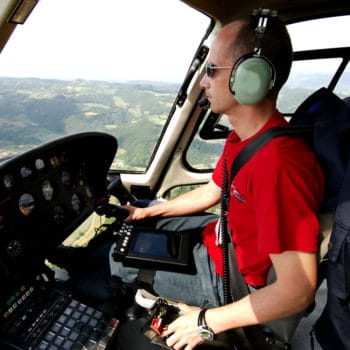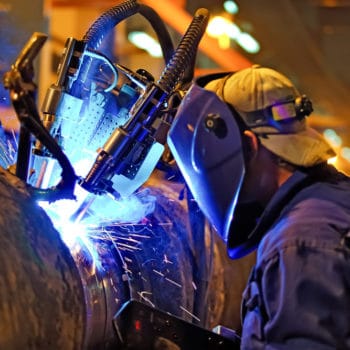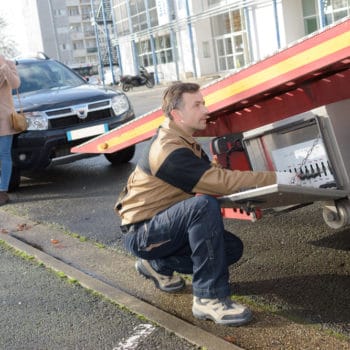Why We Love It
-
$59,360Potential Avg. Salary
-
-2.2%Job Growth Rate
-
Don't Take Work HomeCareer Attribute
-
Fast Paced CareerCareer Attribute
The Locomotive Engineer ensures the safe and proper operation of diesel-electric locomotive or train, in compliance with the latest regulations and protocols. In addition, the locomotive engineer interprets train orders or signals and monitors locomotives for proper maintenance.
Recommended Schools
What is a Train or Locomotive Engineer?
Duties
A train or locomotive engineer is responsible for completing tasks that are highlighted below:
- Closely inspect locomotives and undertake regular maintenance services to adjust brakes, change brake shoes, add oil or water, etc.
- Coordinate with Switchman, Brakeman and Conductor on radiophone, to operate the starting signal and controls like airbrakes and throttle.
- Accurately interpret instructions such as stops, delays, railroad rules and regulations to safely handle the locomotive, on time.
- Utilize knowledge of the surrounding area such as terrains, curves and grade crossings to provide timely warning signs and ensure the safety of rail cars.
- Work as the main point of contact for yard workers like Dispatch to issue and receive important information for operating the locomotive.
Day In The Life
As a locomotive engineer, you will be driving long-distance freight or passenger trains, not subway trains, from one destination to the other. The primary role of a locomotive engineer is to operate controls efficiently, irrespective of whether the train runs on battery, electric or a diesel-electric engine. In most cases, they drive diesel-electric engines. It is up to you to monitor vital parts like power and speed of the train, while making the appropriate changes as per terrain, type of cargo and weather status.
Based on the type of goods being carried, the locomotive engineer employs different driving techniques depending on rail conditions. Since the locomotive engineer’s work requires inputs from other departments, they have to keep in touch with dispatchers or other railroad workers throughout the day to stay informed about scheduling updates, train inspection logs, etc. Thus, if a train is carrying sensitive or hazardous materials through inclement weather like hail, it will operate at a different pace versus a train that is carrying coal in rough terrain.
Work Schedule
As a locomotive engineer, you can expect to work at odd hours of the day, which includes nights, holidays and weekends. You need to be on call 24/7 for this role. If you are working beyond 8 hours daily, some railroad companies will pay you at one and one-half times the regular rates. Aspiring locomotive engineers must be comfortable adapting to tight deadlines and much travel when operating locomotives. Usually, employees get a two-hour advance notice to show up to work and receive the details of which train they will operate or take to another city as needed. When performing the duties of the job, you may be exposed to various types of weather, e.g. hot, cold, dusty, dry and humid. The noise levels can also be moderate or high due to machinery and equipment running nearby.
Growth Of The Job
The demand for professions related to rail transport is expected to grow. Employment in railroad transportation occupations is expected to increase by 1 percent, which is to say negligible change. While job growth may be slower than average, there will be adequate opportunities for individuals, due to many locomotive engineers reaching the age of retirement or leaving for more lucrative opportunities in the next few years.
Typical Employers
You can be employed at locomotive engineer roles by private railways businesses and government rail agencies. Some workers in this industry also find open positions at mining and manufacturing establishments that operate their own locomotives. Job listings are currently posted from companies such as Source Energy Services, Canadian Pacific, Trans-Global Solutions, Watco Companies and Amtrak.
Recommended Schools
How To Become a Train or Locomotive Engineer
One has to possess a minimum of high school diploma before employment to be a successful locomotive engineer. But, getting an associate’s degree or certification is highly recommended to be competitive in the field, as more employers are expecting specific qualifications. Enrolling in such a program involves covering relevant topics like railroad technical skills, history, safety rules and regulations and railroad project planning. Other coursework can include business, mathematics, accounting and economics.
In this industry, most employers encourage continuous education and will sometimes pay for any relevant coursework or educational training. Keeping up to date regarding new advances in technology such as high-speed electric trains, will update your skill set as a locomotive engineer and help you to quickly move upward in the career ladder.
Train or Locomotive Engineer Salary Data
We’ve provided you the following to learn more about this career. The salary and growth data on this page comes from recently published Bureau of Labor Statistics data while the recommendations and editorial content are based on our research.
National Anual Salary
Low Range
$46,650Average
$59,360High Range
$82,310National Hourly Wage
Low Range
$22/hrAverage
$29/hrHigh Range
$40/hrHow do Train or Locomotive Engineer salaries stack up to other jobs across the country? Based on the latest jobs data nationwide, Train or Locomotive Engineer's can make an average annual salary of $59,360, or $29 per hour. On the lower end, they can make $46,650 or $22 per hour, perhaps when just starting out or based on the state you live in.
Salary Rankings And Facts
#275 Nationally for All Careers
Above Average Salary Nationally
Highest Education Among Train or Locomotive Engineers
- 0.2% Doctorate
- 1.4% Masters
- 12.9% Bachelors
- 9.8% Associates
- 38.4% College
- 35.4% High School
- 2% Less than High School
Job Growth Projections and Forecast
2014 Total Jobs
40,4002024 Est. Jobs
39,500Job Growth Rate
-2.2%Est. New Jobs
-900How does Train or Locomotive Engineer job growth stack up to other jobs across the country? By 2024, there will be a change of -900 jobs for a total of 39,500 people employed in the career nationwide. This is a -2.2% change in growth over the next ten years, giving the career a growth rate nationwide of Above Average.
Growth Rankings And Facts
#658 Nationally for All Careers
Above Avg. Growth Nationally
What Companies Employ The Most Train or Locomotive Engineers
| Industry | Current Jobs | New Jobs Needed | % Increase |
|---|---|---|---|
| Rail transportation | 39,200 | -1,000 | -1% |
| Support activities for rail transportation | 500 | --- | --- |
| Local government, excluding education and hospitals | 200 | --- | --- |




